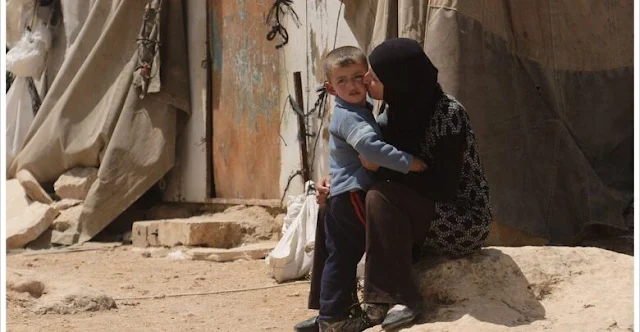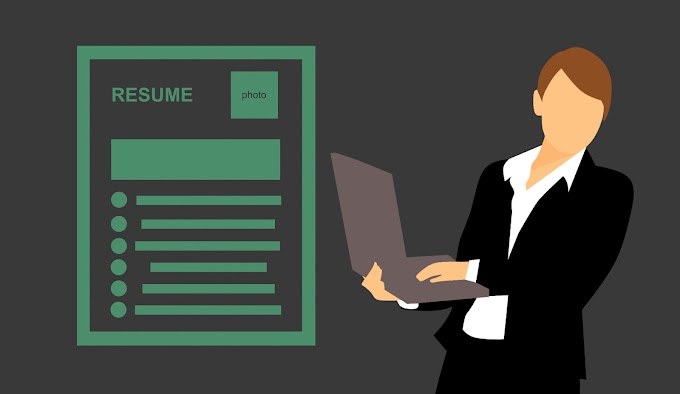Introduction
The current
situation in Palestine is one of deep-rooted conflict and turmoil, which has
had a profound impact on the lives of Palestinians. This article aims to delve
into the historical context, examine the violence and human rights violations
endured by Palestinians, shed light on the economic and social struggles they
face, explore the role of international actors in the conflict, and discuss the
media bias and information manipulation surrounding the Israeli-Palestinian
conflict. Additionally, we will ponder on the prospects for peace and potential
solutions to this longstanding issue.
Muffled Voices Echo: The Innocent Palestinians Cry for Peace
 |
| The Innocent Palestinians Cry for Peace |
Historical Context
The roots of the Israeli-Palestinian conflict
The
Israeli-Palestinian conflict traces its origins back to a series of historical
events that have shaped the current dynamics. From the displacement of
Palestinians to the creation of Israel, these events have deepened the
divisions between the two sides and created a complex web of grievances,
territorial disputes, and competing national narratives.
The impact of colonization and occupation
The Israeli
occupation of Palestinian territories has had far-reaching consequences for
daily life in Palestine. Palestinians endure the constant presence of military
checkpoints, curfews, and severe restrictions on their freedom of movement,
undermining their sense of autonomy and stifling economic opportunities.
Furthermore, the occupation has inflicted profound psychological and economic
distress on Palestinian society, serving as a constant reminder of their
subjugation.
 |
| The Innocent Palestinians Cry for Peace |
Violence and Human Rights Violations
Oppression in the occupied territories
The Israeli
occupation imposes a heavy burden on Palestinians through the establishment of
military checkpoints that restrict their movement within their own land. These
checkpoints disrupt daily life, making it arduous for Palestinians to reach
work, schools, and even essential services. Additionally, Israeli settlements
continue to encroach upon Palestinian land, exacerbating territorial disputes
and eroding resources vital to Palestinian livelihoods.
Home demolitions and forced displacement
Palestinians
endure the systematic demolition of their homes, leaving families displaced and
traumatized. This practice, often justified on the grounds of security,
generates a cycle of displacement that disrupts social cohesion within
Palestinian communities. The process of rebuilding is often long and
financially draining, further plunging affected families into despair and
uncertainty.
Detention and imprisonment of Palestinians
Israel's high
number of Palestinian prisoners raises concerns about the treatment and due
process afforded to these individuals. Palestinians often face arbitrary
detention, extended periods of imprisonment without trial, and allegations of
torture while in custody. These actions erode trust between the communities and
perpetuate a cycle of injustice.
Excessive use of force and civilian casualties
Israeli military violence frequently results in civilian casualties, infringing upon international laws and human rights standards. The disproportionate use of force in response to Palestinian protests or uprisings has led to the loss of innocent lives, leaving indelible scars on the collective Palestinian psyche. Palestinians bear the brunt of this violence, compounding their suffering and deepening their resentment.
Economic and Social Struggles
Economic disparity and restrictions on Palestinian trade
The Israeli
government maintains extensive control over Palestinian trade, imposing
restrictions that hinder the development of Palestinian businesses and
livelihoods. Palestinians face bureaucratic obstacles, discriminatory policies,
and limited access to resources necessary for economic growth. This economic
disparity further entrenches the power imbalance between the two sides and
perpetuates the cycle of poverty and dependency.
Limited access to education and healthcare
Palestinians
face numerous challenges in accessing quality education and healthcare due to
the occupation. Israel's control over movement restricts access to educational
institutions and medical facilities, hindering the development of a skilled
workforce and perpetuating gaps in healthcare services. The long-term
consequences of these restrictions impact Palestinian society's well-being and
human capital development.
Water scarcity and resource control
Water-related
issues pose significant challenges in the occupied territories. Israel's
control over water resources disproportionately benefits Israeli settlers,
while Palestinian communities face severe scarcity. This disparity further
exacerbates social and economic inequalities, impairing the well-being and
development of Palestinian communities.
Role of International Actors
Ineffective international diplomatic efforts
Previous peace
negotiations have failed to produce a sustainable resolution to the conflict.
Despite numerous international initiatives, peace remains elusive due to the
complexity of the issues and the deep-rooted grievances on both sides. The
influence of international actors in promoting meaningful dialogue and
compromise has proved insufficient in ending this protracted conflict.
Human rights organizations and their impact
Human rights
organizations play a crucial role in raising awareness and documenting human
rights violations committed against Palestinians. Their efforts shed light on
the realities faced by Palestinians daily, challenging the dominant narratives
perpetuated by those in power. However, these organizations face significant
challenges, including smear campaigns and restrictions on their activities,
which call into question the impact they can ultimately have.
Global public opinion and grassroots movements
Public opinion
and grassroots movements have emerged as powerful players in shaping
international discourse surrounding the Israeli-Palestinian conflict. As more
people become aware of the injustices faced by Palestinians, they influence
policies and actions taken by governments around the world. Grassroots
movements advocating for Palestinian rights continue to grow, amplifying the
voices of the oppressed and shedding light on the urgent need for justice.
Media Bias and Information Manipulation
Mainstream media portrayal and framing
The mainstream
media's coverage of the Israeli-Palestinian conflict has been consistently
plagued by biases and framing that disproportionately favor one side over the
other. These biases shape public perception and contribute to a distorted
understanding of the realities on the ground. Consequently, media framing
perpetuates the prevailing power dynamics and hinders productive dialogue
towards a just and lasting solution.
Social media and citizen journalism
Social media
has emerged as a platform for presenting alternative narratives that challenge
mainstream media biases. Citizen journalism allows individuals on the ground to
directly report on events, providing a firsthand account of the lived
experiences of Palestinians. However, amidst the vast amount of unverified
information, challenges arise in maintaining accuracy and discerning the truth
from misinformation.
Prospects for Peace and Solutions
The two-state solution: Feasibility and challenges
The two-state
solution, envisioning an independent state for both Palestinians and Israelis,
has long been proposed as a potential path to peace. However, achieving this
solution faces significant obstacles, including territorial disputes, the
status of Jerusalem, and the right of return for Palestinian refugees. These
challenges necessitate sincere negotiations, compromise, and a genuine
commitment by both parties to address the core issues.
The role of international law and UN resolutions
International
law provides a framework for resolving the Israeli-Palestinian conflict,
emphasizing the principles of self-determination, human rights, and the
prohibition of land acquisition through force. UN resolutions, while often
subject to political maneuvering, have upheld the rights of Palestinians and
shed light on the illegality of certain Israeli practices. The adherence to and
enforcement of these laws and resolutions are crucial for a just and lasting
peace.
Grassroots initiatives and community building
Grassroots
initiatives that prioritize dialogue, understanding, and community building
have the potential to foster peace on a local level. By bringing together
Palestinians and Israelis, these initiatives create a space for exchange,
empathy, and the development of mutual respect. They serve as a reminder that
peace is not solely the responsibility of governments and international actors
but also lies within the hands of individuals and communities.
Summary
Throughout this
article, we have explored the historical context, violence and human rights
violations, economic and social struggles, the role of international actors,
media bias, and prospects for peace in the Israeli-Palestinian conflict. The
urgent need for peace and justice in Palestine cannot be overstated. It is
essential for individuals, communities, and international actors to unite in
pursuit of a just and lasting solution that respects the rights and dignity of
all involved.
Frequently Asked Questions (FAQs)
- Q: What is the Israeli-Palestinian
conflict?
- The Israeli-Palestinian conflict
refers to the ongoing political and territorial dispute between Israelis
and Palestinians concerning the land of historical Palestine.
- Q: What are the main issues at the
heart of the conflict?
- The main issues at the heart of
the conflict include territorial disputes, the status of Jerusalem, the
right of return for Palestinian refugees, security concerns, and the
establishment of a lasting and just peace.
- Q: What are the major human rights
violations committed against Palestinians?
- Palestinians endure human rights
violations such as restrictions on movement, home demolitions, forced
displacement, arbitrary detention, excessive use of force resulting in
civilian casualties, and limited access to education, healthcare, and
economic resources.
- Q: What role does the
international community play in resolving the conflict?
- The international community,
including governments, human rights organizations, and grassroots
movements, plays a pivotal role in advocating for a peaceful resolution,
raising awareness about human rights violations, and pressuring parties
to engage in meaningful dialogue towards a just solution.
- Q: Why is media bias and
information manipulation concerning the Israeli-Palestinian conflict?
- Media bias and information
manipulation surrounding the Israeli-Palestinian conflict perpetuate
one-sided narratives, distort public perception, and hinder efforts
towards justice and peace. It is essential to critically analyze media coverage
and seek alternative perspectives.
- Q: What are some potential
solutions to the conflict?
- Potential solutions include a
two-state solution, international law-based resolutions, and grassroots
initiatives promoting dialogue and community building. Achieving peace
requires genuine negotiations, compromise, and a commitment to addressing
core issues.






